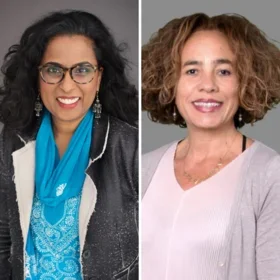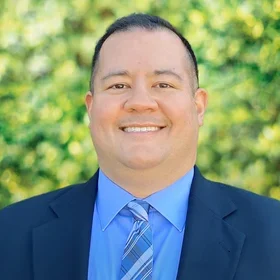Krystle-Jayne Ng moved from Sydney, Australia, to Washington, D.C., to Seattle, Washington while evolving in her role at Microsoft. Knowing she needed a comprehensive understanding of the business side of her work, she enrolled in Columbia’s Executive Master’s in Technology Management program. While in the program, she was awarded one of Microsoft’s 2020 Circle of Excellence: Gold Club Awards and promoted to Services Practice Leader.
Tell us about your career path and what led you to Columbia’s Executive Technology Management degree program.
I completed my Bachelor’s of Information Technology from the University of Technology, Sydney in Australia. While pursuing the degree, I had the opportunity to get a foothold in the tech industry, first as a Project Coordinator at IBM, then as a Business Analyst at Deloitte, and later as a Change Management Analyst at Macquarie Group. After graduating, I joined Microsoft.
I worked in the field with enterprise customers as a Technical Account Manager. After I came over to the U.S., I wanted to move into a business program manager role, to transition from the purely technical side to the business side, and have more ownership of the sales and customer experiences. That is one of the main reasons why I pursued the master’s degree—to move from a purely technical mindset toward a stronger business acumen.
I did some research and considered an MBA, then found Columbia’s Technology Management program. It had all the fundamental teachings inherent in an MBA but with a technical focus. I never wanted to stray too far from tech, which is my passion, but I needed to learn the business side to progress within my career.
That is one of the main reasons why I pursued the master’s degree—to move from a purely technical mindset toward a stronger business acumen.
How would you describe your experience in the program?
While I was studying mostly online from Seattle, our cohort came together for two residencies last fall and then later again, at the beginning of the Spring semester. When the pandemic hit, we all went online. The instructors adapted very quickly and were incredibly engaging. My cohort really stepped up to be more present in everything we were doing. This year really brought out the leadership qualities of my cohort, making sure we were committed to sharing ideas and to learning—it was a challenge, and a steep learning curve, but we are definitely stronger and more adaptable for it.
I was able to meet technology professionals across such a wide variety of industries and learn about different business subjects—accounting, finance, legal—all with the tech lens. I enjoyed the Strategic Advocacy class, where I was able to reflect on how I form relationships at work, which helped me to build stronger alliances within my own organization.
I knew I wanted to apply what I was learning in the program to pursue a leadership role at Microsoft, and the opportunity came sooner than I expected. Microsoft awarded me the Circle of Excellence: Gold Club award in 2020 while still studying in the program. From there, I was promoted to a Services Leadership role on Microsoft’s consulting side.
My thesis is based on a startup that I plan to pursue once the pandemic is over. It was fantastic to get my mentor’s real life experience and apply it to my project, which is a platform to counter the $600B in losses retailers face each year due to returns. The whole process of the Executive Seminar was invaluable, in that I took my pitch to multiple judges, CEOs and CIOs, received their real-time feedback, and honed the business needs and made adjustments for future pitches.
I also serve as the Technology Management representative of the SPS Student Government. We meet regularly with Dean Troy Eggers, who is Interim Dean of the School and Executive Vice Provost of the University, to discuss the activity of our different committees and the feedback we are getting from other students in the programs at SPS. I am fortunate that my cohort is a tight-knit community, where we’re in constant communication and can discuss both our successes, and challenges. I’ve been very impressed by the Dean and his keen interest in student affairs. The major theme, of course, has been how students are dealing with the pandemic. We’ve also been working hard on how to deepen connections between students and alumni, while being remote.
My cohort really stepped up to be more present in everything we were doing.
What kind of impact would you like to make in your career? What advice do you have for future students in the program?
During the COVID-19 pandemic, Microsoft has been incredible, supporting other organizations migrate to remote working. Microsoft has also empowered its employees throughout this difficult year, allowing for flexibility and offering support to our families and communities. I really admire Microsoft’s people-first culture and how they have led us through this year. I want to continue on my path at Microsoft, continue to apply what I’ve learned at Columbia, and continue developing myself as a leader in the industry, to empower every person and organization to achieve more, through digital transformation.
My advice for future Technology Management graduate students is that you will get back as much as you put into the program. If you are applying yourself and bringing these theoretical scenarios into the real world, you will gain a holistic business mindset, and you will bring the success you find in the program to your professional career.
Learn more about the Executive M.S. in Technology Management program.


